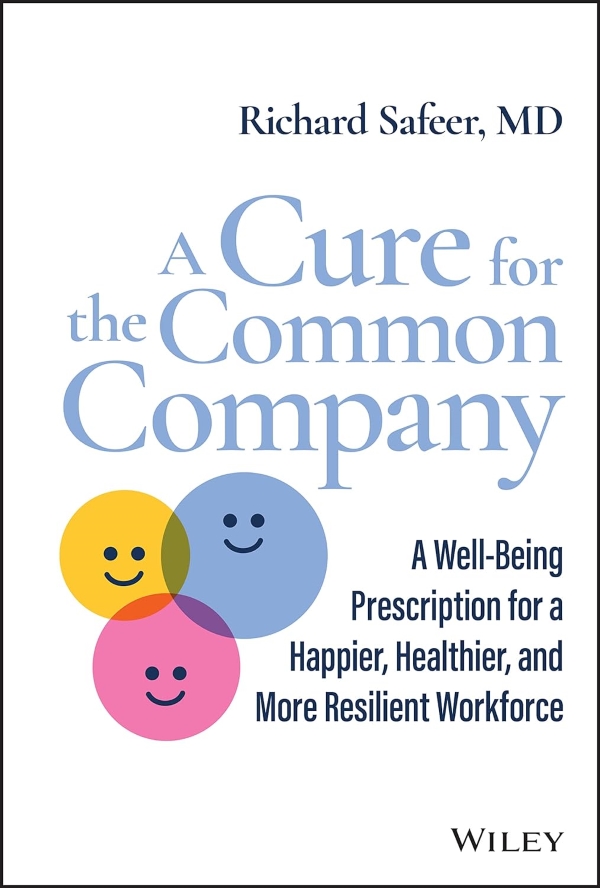Robert B. Wegmans’s portrait is posted near the front of every Wegmans store, along with his credo, “Never think about yourself; always help others.” What a great world we’d live in if we all lived by that mantra, and what a great value to work by. Fortune magazine, agrees, putting Wegmans on its 100 Best Companies to Work For every one of the 25 years the ranking has been made available. [i]
If it were only so easy to articulate a great commitment that supported both employees and customers and then magically see it come to fruition. Companies like Zappos work hard and are very intentional in shaping their core values. “Create Fun and a Little Weirdness” and “Build a Positive Team and Family Spirit” are just two of their ten core values that clearly support well-being. Zappos builds cultural fit into their interview process and once on board, there is a training team to impart wisdom about each core value. The result? Zappos is a Fortune 100 Best Companies to Work For seven years in a row.[ii]
Are you getting the picture? Shared values matter. But it’s unusual for a company to put employee health and well-being on the high-priority list, alongside goals like profitability, outstanding customer service and new product innovation. However, we have clear evidence that a culture that puts employee well-being at the top, starting with its values, will lead to success. In fact, guess what shared values show up in Fortune’s Best Companies to Work For?
It’s a common misunderstanding that employee health and well-being only benefits the individual or only the employer. Everyone benefits. These mutual benefits stem from shared values, the priorities that both employees and the employer embrace. When employees appreciate that their job and their employer value their well-being, then companies flourish. According to research by McKinsey & Company (and found true by others), companies with the healthiest cultures perform the best and those with the worst flounder, or dissolve altogether.[iii]
If you already work at a company where employee health and well-being are valued, like Johnson & Johnson, Wegmans, and Marriott International, count yourself lucky! However, don’t despair if not, because it’s quite likely that your organization does have at least one shared value that sits hand in hand with health and well-being, such as respect, trust, equality, inclusion, and diversity.
Pause for a moment. How are your company’s shared values working for your team? For your organization? Do you even know what they are? This isn’t just something to check off the human resource “must do” list. An organization’s values can substantially impact its success. In Richard Barrett’s book, The Values-Driven Organization, he explains that those companies that adopt “care or love-driven cultures” through values such as teamwork, balance (work and life), and fun support well-being.[iv] These companies focus on the needs of their employees. When employees feel cared for, the employees will care for the company.
There are other companies that may be living values that promote a “fear-driven culture,” even if these aren’t the values written on the company website. The values in this group include hard work (a.k.a. long hours) and results (a.k.a. productivity). The values in this type of culture are focused on the needs of the leaders, owners, and shareholders. This culture promotes stress, distrust, and self-interest.
The contrast between “love-driven” and “fear-driven” cultures is vast. Your company’s current values are likely a mix of both “love-” and “fear-driven” types. Even when the company’s values are written in a way that clearly supports well-being, if leaders (from the CEO to the manager) don’t live these values, then they aren’t meaningful. Don’t always trust what you read, even when it’s chiseled in marble in the main lobby of a corporate headquarters.[v] This was the case for a once highly valued company. Enron was one of the world’s biggest utility companies. They proudly espoused their values of Integrity, Communication, Respect and Excellence.[vi] They hardly had integrity, manipulating their financial records to appear more profitable than was reality. What part of hiding the truth fulfills the values of communication and respect? It’s not even worth commenting on excellence when referring to a bankrupt company.
Sometimes your work team needs to take an additional step to reinforce the company’s values and see that they are practiced throughout the workday. That might be the best way to optimize the health and well-being amongst the entire group – including you.

Excerpted from A Cure for the Common Company, Chapter 1, published by Wiley, January 2023
[i] https://fortune.com/ranking/best-companies/
[ii] Thebalancecareers.com/zappos-company-culture-1918813.
[iii] https://www.mckinsey.com/business-functions/people-and-organizational-performance/our-insights/the-organization-blog/culture-4-keys-to-why-it-matters
[iv] The Values-Driven Organization, Cultural Health and Employee Well-being as a Pathway to Sustainable Performance. Second Edition. Richard Barrett. 2017 by Routledge, NY, NY.
[v] EVP- Enron’s Was Chiseled In Marble by Steve Bruce, April 2, 2015. EVP—Enron’s Was Chiseled in Marble (blr.com) Last accessed May 30, 2022.
[vi] Elliott, G. and Corey, D., (2018) Build It: The Rebel Playbook for World-Class Employee Engagement, Wiley, Feb 1.


